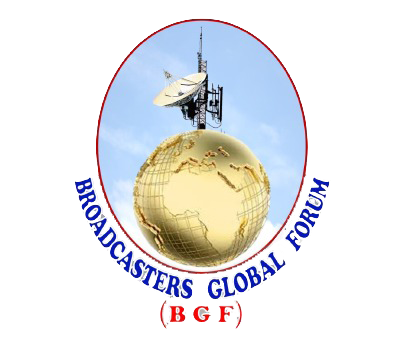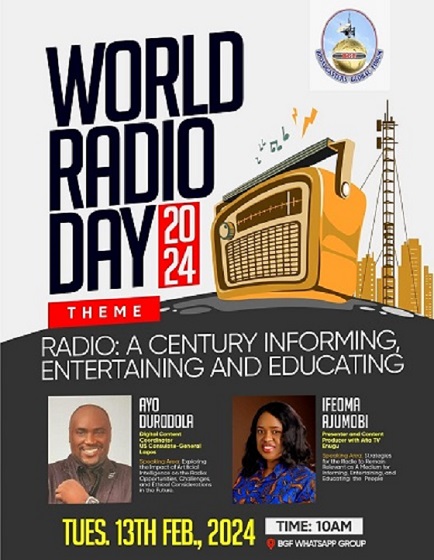The Broadcasters Global Forum (BGF) held a special colloquium on its virtual platform to commemorate the 2024 World Radio Day on Tuesday 13th February 2024. The topics discussed fed into the year’s theme of Radio: A Century informing, Entertaining and Educating.
Two seasoned broadcasters with firm roots in radio broadcasting addressed the topics:
- “Exploring the Impact of Artificial Intelligence on the Radio: Opportunities, Challenges, and Ethical Considerations in the Future” by
Ayo Durodola
- “Strategies for Radio to Remain Relevant as a Medium for Informing, Entertaining and Educating the People” by
Ifeoma Ajumobi
The parley was moderated by Ugonma Cokey
First Presentation
“Exploring the Impact of Artificial Intelligence on the Radio: Opportunities, Challenges, and Ethical Considerations in the Future”
- Ayo Durodola
What is Artificial Intelligence and How Does AI Work?
Artificial intelligence is the simulation of human intelligence processes by machines, especially computer systems. Specific applications of AI include expert systems, natural language processing, speech recognition and machine vision.
A simpler definition could be..AI is the ability of a machine to display human-like capabilities such as reasoning, learning, planning and creativity. AI enables technical systems to perceive their environment, deal with what they perceive, solve problems and act to achieve a specific goal.
The applications for artificial intelligence are endless. The technology can be applied to many different sectors and industries. AI is being tested and used in the healthcare industry for suggesting drug dosages, identifying treatments, and aiding in surgical procedures in the operating room.
Other examples of machines with artificial intelligence include computers that play chess and self-driving cars. Each of these machines must weigh the consequences of any action they take, as each action will impact the end result. In chess, the end result is winning the game. For self-driving cars, the computer system must account for all external data and compute it to act in a way that prevents a collision.
Artificial intelligence also has applications in the financial industry, where it is used to detect and flag activity in banking and finance such as unusual debit card usage and large account deposits—all of which help a bank’s fraud department. Applications for AI are also being used to help streamline and make trading easier. This is done by making the supply, demand, and pricing of securities easier to estimate.
Since the introduction of Chat GPT, followed by Futuri’s RadioGPT, the talk in the radio industry has been all about artificial intelligence. How will AI affect our industry? Will it allow broadcasters to do new and exciting things or will corporations use it primarily as a cost-cutting tool? Will on-air talent perform better when assisted with AI or will they be replaced by it?
It is easy to get caught up in the fervour, but it is helpful to take a step back and look at the larger picture. How should broadcasters be thinking about AI?
Opportunities for AI in radio broadcasting
AI has many different applications across a range of industries and may be used in radio broadcasting too. One potential application is in choosing the kind of music and content that listeners want to hear. While a human DJ cannot be replaced, an algorithm could take over as a producer, selecting the tracks that work best.
Artificial Intelligence (AI) is rapidly transforming various industries, and the radio is no exception. AI has the potential to revolutionize radio broadcasting and enhance the listener experience while also introducing new challenges and ethical considerations. We will discuss the opportunities, challenges, and ethical considerations of AI in the radio industry.
Opportunities
- Personalized Content: AI can analyze listener preferences and behaviour to provide personalized content recommendations. This can improve user satisfaction and engagement, attracting and retaining a larger audience.
- Efficient Content Creation: AI-powered tools can assist broadcasters in creating content, such as automated news reporting and editing. This can save time and resources for radio stations, enabling them to focus on higher-value tasks. – AI-powered tools can generate news, weather updates, and even presenters’ voices, reducing production costs.
- Enhanced User Interaction: AI chatbots and voice assistants can provide real-time interaction with listeners, answering their queries, and providing a more immersive experience. AI can enable seamless language translation, allowing radio stations to reach broader audiences.
- Targeted Advertising: AI algorithms can analyze user data to deliver targeted advertisements, enabling radio stations to boost revenue and advertisers to reach their intended audience more effectively.
Challenges
- Loss of Human Connection: AI-driven content can lack the human touch and emotional connection that traditional radio provides. This might lead to a decline in listener engagement and loyalty.
- Filter Bubbles: AI algorithms may inadvertently create filter bubbles, where listeners are only exposed to content that aligns with their existing beliefs and preferences, limiting their exposure to diverse perspectives.
- Data Privacy and Security: AI requires access to vast amounts of data, raising concerns about privacy and security. Radio stations need to ensure proper data handling and protection to maintain listener trust.
- Reliability and Bias: AI systems are not infallible and can lead to errors or biases in content recommendations or news reporting. It is crucial to constantly monitor and assess AI algorithms to minimize these risks.
Challenges of implementing AI in radio
– Job displacement: The fear of automation replacing human announcers, journalists, and other radio professionals. A radio station made history by becoming the first in the U.S. to use an AI DJ for an entire shift.
“AI Ashley” first appeared in June 2023 on Live 95.5 in Oregon, and used an artificially generated version of the voice of Ashley Elzinga, a human host based in Michigan, with her consent.
Unlike a human worker, AI does not require breaks, and it is capable of performing a large number of tasks in a very short space of time. This means it can quickly learn and process data, making analytical tasks much easier.
– Trust and credibility: Ensuring AI-generated content is accurate, reliable, and trustworthy to maintain listener trust.
The goal of AI is to build computer systems that are capable of simulating human intelligence. This way, a computer system will be able to solve more complex problems and understand a wide range of concepts to better understand the data it processes. A wide range of different technologies are used to achieve this aim, and the field is advancing each year.
– Data privacy and security: Addressing concerns about the collection, storage, and use of listeners’ personal data and preferences.
Ethical Considerations
- Transparency and Explainability: Listeners may have the right to know when AI is being used, how their data is being collected, and how AI algorithms influence the content they are exposed to. Transparency and explainability are vital to maintaining trust with the audience.
- Fairness and Equality: AI algorithms should be designed and trained to avoid perpetuating biases and ensure equal representation of diverse voices and perspectives.
- Human Oversight: While AI can automate many tasks, human oversight is necessary to ensure that the content produced aligns with ethical guidelines and quality standards.
- Accountability for Misuse: Radio stations need to establish protocols and guidelines for AI use, ensuring accountability for any potential misuse or unethical practices.
Conclusion
In conclusion, the impact of AI on the radio industry brings both opportunities and challenges. By leveraging AI technologies, radio stations can offer personalized content, improve efficiency, and engage with listeners in new ways. However, ethical considerations such as transparency, fairness, and human oversight are crucial to ensure AI is used responsibly and for the benefit of all listeners.
Despite all this, the human producer still has the final say in what is broadcast.
References
How Radio Stations Should Be Thinking About AI by Seth Resler · June 26, 2023
How Artificial Intelligence can change the radio broadcasting industry. Written By A RadioToday Reporter August 25, 2022
Radio broadcasters sound off on artificial intelligence.
By Cheri Preston, Dana Schaeffer, and Michael Dobuski. September 4, 2023.
The Power of Artificial Intelligence in Broadcasting for Media Advertising by Media Partners Worldwide. August 2023.
Moderator
So, Ayo says part of the opportunities to grab and run with is personal content, efficient content, enhanced user interaction, targeted advertising, and so on. Hmm!
Thank you so much, Ayo, and for also warning us about the challenges.
Ifeoma Ajumobi followed with a melodious voice presentation on “Strategies for Radio to Remain Relevant as a Medium for Informing, Entertaining and Educating the People”
You can listen to Ifeoma’s audio presentation HERE
CONTRIBUTIONS/QUESTIONS/ANSWERS
Snippets from the presentation on strategies to make radio remain relevant
Connecting with technology
- Training; raising professionals
- Going the extra mile in giving information
- Fact-checking
- Creativity
Question
Eric Ilechukwu
Is the radio business so lucrative that it has attracted so many business people, leading to, if am correct, a kind of proliferation?
Answer (Ayo Durodola): If it isn’t lucrative, I doubt if we would have the numbers of radio stations existing. Lagos aside, Ibadan has more than 10.Tajudeen Adepetu has how many media outfits again? Fresh FM is present in all the Yoruba-speaking states, etc.
Rejoinder
Tony Ekata
True. Plus, there are hundreds of radio licence applications awaiting approval.
What’s the attraction?
Question
Peter Bahago
How can regulatory issues arising from the use of AI in broadcasting be tackled?
Answer (Ayo Durodola): Educating the regulatory body is compulsory and modifying existing laws; even though I have my own-ish with the NBC because I marvel at their acts most times.
Moderator: Who will educate the regulators? The professionals?
Answer (Ayo Durodola): A regulator who knows his onions will seek training and retraining…will seek dialogue with operators..will consult relevant bodies and actually LISTEN.
Moderator: Reminds me of David Ajikobi’s question each time he trains on fact-checking. Who fact-checks the fact-checker? They have a responsibility and must find positive ways to carry it out
Rejoinder
Peter Bahago
I flipped through the NBC laws in the course of my research on media convergence and its implications for international radio broadcasting, and I was stunned at most of the sections of the NBC Act. They need to be repealed and updated to accommodate the current realities.
Moderator: Most of those laws were made with government-owned stations in mind, and like you said, they need to be reviewed to accommodate private broadcasters while some should be outrightly repealed.
Moderator
Is radio really free for the consumer when you already agreed he has to use data which, by the way, is not free or does not come cheap?
Answer (Ifeoma Ajumobi ): Ifeoma Ajumobi: It is still free to a large extent, depending on the device you use. I have a phone I use just for monitoring the radio wherever I find myself and can’t connect to the Internet. It’s free when you are listening to it from your car, not via the Internet. My dad always had his electronic radio by his side; he didn’t pay a dime to tune in.
Contributions
-
Paulyn Ugbodaga
Good morning, esteemed members of this platform.
My name is Paulyn Ugbodaga. I worked at radio for quite a few years and then switched to Administration/HR, and later still, to news. Having introduced myself, I would like to share a few thoughts.
First, many thanks to our resource persons, Ayodele and Ify Melody. Most interesting presentations!👏🏼
Now, the question that bogs my mind is whether or not, radio is still relevant in today’s world.
Let’s bear in mind that radio, originally local, is now international, thanks to technology. Radio as we knew it years ago, has metamorphosed into a distinct format. As a young broadcaster, I was encouraged to paint pictures with words and simulated emotions. Today, media convergence has changed that significantly.
Now, how radio content is consumed has also been modified. Social media has seen this.
These have been discussed by our resource persons, so I will not dwell on them.
I think that the constant changes in how radio content is consumed should not be an excuse for throwing away professionalism. It should not be an excuse for discarding ethics. It should not be an excuse to be an “all comers, anything-goes” affair.
As Ify Melody says in her voice notes, training is key. Training should include the basics of ethics and how they can be applied to present-day radio, bearing in mind that it is both local and international. Training should include coaching, mentoring and reverse mentoring. That way, its relevance will not be threatened.
And just before I knock off, I have a few questions. Today, who actually listens to the radio? How can we get young audiences attracted to radio? What role does content on radio play in attracting different audiences?
Thank you.
Response
Ifeoma Ajumobi
To answer some of your questions, in the course of marketing media (adverts for products and brands) I have met people who prefer to advertise on the radio rather than TV because they feel more people listen to the radio easily than watch TV, especially during various drive times, early work rush hours, movement between meetings, and close of work. It is easier to drive and listen than drive and watch😊. Also, radio is much cheaper and still has the masses’ attention.
So, I will say people still listen well. But I guess the question here is do the GenZs and Millennials listen to the radio; how do we get them to listen? 🤔
-
High Chief Yinka Amosu
Thank you all distinguished colleagues and accomplished professionals. This is Adeyinka Amosu reporting…..
Let me start on a note of apology for coming in late; it’s never part of the Radio Tradition, but Lagos traffic is no respecter of any culture. Having said that, I guess it’s only pertinent to salute the courage, tenacity, dexterity and sagacity of many Radio personalities before us and those still coming behind.
Radio as a major part of Public Enlightenment, Information, Entertainment and Education has really come a long way, especially in the hands of notable global personalities and leaders. It has served as a major mass mobilisation apparatus even in the Developed World.
For instance, if we call to mind, a Former US President, Franklin D. Roosevelt (1933-44) put Radio into effective use through his then ‘Fireside Discussion Series’ which served as the major rallying point for the American populace at that critical time in History. That speaks volumes about the importance of the medium of Radio even at critical times.
Many of us here will testify to the fact that the relative success in sustaining the Nigerian/Biafran Civil War was largely through the effective use of Radio, especially by the Biafran Propaganda Machine of that Era. Coming closer home and to recent history, Nigeria’s return to Democratic Rule in 1999 was further strengthened with a series of public-oriented programmes on Radio through which many appreciated the beauty of democratic values. Topmost in this regard is President Obasanjo’s monthly Live feature on Radio called ‘The President Explains’, which Yours Sincerely had the rare privilege of coordinating for many years.
In overall appraisal, and as has been mentioned here earlier, the relative affordability of Radio, even amid recent and new technological breakthroughs, accounts largely for its continued survival and dominance, especially in rural communities.
I thank you all most sincerely🙏
-
Nwannukwu Chirotalu
The Challenges of The Radio Today and Prospects for Tomorrow
Happy World Radio Day to us.
Challenges
Infiltration of quacks: Here we must recognise the fact that what constitutes radio is the voice. So, one of the challenges of today’s radio is the lack of human incentive. While professionals identified as the real radio image are being discouraged, quacks are jumping at any underserved opportunity to take over the radio. This in so many ways hampers the finesse that radio is known for.
Economic meltdown
The real players who understand the rudiments of the game are not given the leeway to own the radio of their dreams due to the huge amount attached to Radio Licence, especially in Nigeria.
Intimidation from the ruling class
In Nigeria, for instance, some voices who had hitherto criticized the unfavourable policies of some leaders via the radio have been compromised either by money inducement or sheer threats.
Social Media
The advent of social media could pose another challenge to the radio today. As amusing as this may sound, bloggers, skit makers, etc., are fast taking the shine off Radio. Research has shown that most youths prefer getting updates through gossip sites to clicking on any online radio. They spotlight limited data, lack of electricity, and money to buy radio batteries as their constraints.
There are other challenges but for the lack of time.
Prospects
Radio being a remarkable medium that has endured for ages should not be allowed to shrink further. Social media, though a seeming rival to the radio has provided the opportunity for online radio training, broadcasting and so on.
As concerns radio in Nigeria, the NBC has a huge role to play in the prospects of today’s radio by dishing out fewer sanctions against radio stations and encouraging more radio ownership by more professionals than politicians.
Finally, all voices that make up radio should not relent in their quest for professional ethics that stand Radio out among other media.
Together we can sustain the legacy called Radio.
Thanks for identifying with Radio.
# I ❤️📻
-
Collins Atohengbe
Hello Folks! Welcome to the Day of The Radio across the globe. Despite the introduction of alternatives to the Radio, the truth is there is no killing the Radio. It may sound rather over-ambitious to claim there is no killing the Radio. Truth is, it is the cheapest means of reaching the masses at once.
I remember how in the late 50s I would attempt to see the people singing inside the Radio. Then, it was Redivision connection by wire from the P&T as it was called and how the box was raised higher up because it was my main attraction as a child that I was.
Then came the transistor Radio. That technology gave birth to Television and funny enough, it became the driver for mass entertainment, a source of family reunions just before night-time with me listening to stories and drama pieces like ‘Alao’ and ‘Shaky-Shaky’.
That invention could not have been a mistake. It fulfilled its purpose in every sense of it. One of my uncles caught his wife’s attention when he bought a radio set and that wedding lasted until the end of time. The Yoruba wordsmith, Akewi Agba Adebayo Faleti, thrilled many a world.
I came fully into the picture when I became a news reader in the Edo Language in 1976 at the local level in Benin and the national level now as a staff of NBC Lagos and later FRCN Ibadan. My life has always been around the talk box. To this day, I am not separable from the radio; even after retirement, I am on the radio in Kiswahili.
Well, since it’s RADIO DAY, let me reveal that I met my Adunni while on the Radio and we are happy ever after.
Coming to this day, I believe we should go back to the functional days of Radio through purposeful programming to EDUCATE, INFORM and ENTERTAIN. Even if it has been taken into the Cell Phone, Radio is still the name and it has all that it takes to help build our societies and restore the lost aspect of our culture and traditions.
Do I love the Radio? Haaaaaa, how can you ask that question? It’s in the blood!
-
Barth Ikiebe
Radio access and affordability is still free, if u like, the freest in Media genre. All you need is a small transistor Radio which is cheap and powered by battery. The Internet has made it now possible to tune to any Radio station in the World in your bedroom. Happy World Radio Day.
-
Regina Chris-Ogbodo (Reggypanache)
It’s a pleasure having you here, Sis( I think I’m qualified to address you as such).
I recall a few months ago, you were on a webinar that I moderated.
A bit of some gist: Your voice, still resonates in my memory, and along with the rich programs you led, have left a lasting impression on me.
I believe it was in Jos where I first became an avid listener, before continuing to tune in when you moved to RayPower.
My most vivid memory of meeting you in person dates back over 26 years, during a visit with my fellow third-year Mass Communication students from Unilag.
After meeting with the late High Chief Raymond Dokpesi( RIP), we toured various departments, including the Library where I had the fortune to encounter you.
Since then, my journey took a turn towards television, diverging from my initial passion for radio.
However, as the twists and turns of life would have it, I found my way back to my original love.
Now, to respond to your question of whether or not radio is being listened to, let me say that despite the evolution in how we consume media, I firmly believe that radio has not lost its essence or significance.
Its ability to adapt and remain relevant, especially in contexts like Nigeria’s political landscape, showcases its enduring appeal. The misconception that radio is fading in the face of digital advancements is debunked by the significant role it continues to play, particularly in reaching and mobilizing large segments of the population. The North is a clear example.
Interestingly, even as Nigerians have been recognized for their prolific use of social media globally, this does not detract from the importance of radio.
Its persistent relevance speaks volumes, underscoring the fact that overlooking its impact would be a mistake.
Rejoinders
Eric Ilechukwu
One more thing that makes radio indispensable, even this time, is the unflinching belief that radio does not tell lies. For fact check, people prefer to listen to the radio, especially Radio Nigeria, on national issues.
It can’t be wished away.
-
Tony Ekata
True! However, it is imperative for traditional radio stations to migrate to digital platforms and be flexible in their programming to have a good share of the new-generation audience.
-
Ugonma Cokey
I agree with you, but I also get very irritated by this new-generation programming. Most of them don’t have produced programmes of their own and no script; they permanently speak off-the-cuff because they wait for the audience to help with the programme to fill airtime. I have said many times that if it was in my power, one day I would shut all the networks for an hour to teach them what programme production means because I believe a lot of them would become confused as to what to do.
-
Paulyn Ugbodaga:
Thank you so much, dear sis 😘
You make me feel nearly swollen-headed with your kind words. Thank you for the honour 🎖
I think we are, largely, on the same wavelength. Where I have my concern is the radio listening patterns of upcoming generations. From interactions with this category of listeners, we seldom give them what they would like to listen to, and so they switch to other audio content. We should focus on their listening habits and see how we can reach, satisfy and retain their custom.
Responses
-
Regina Chris-Ogbodo
You are welcome. I absolutely agree with you.
Programme/content writers must curate what fits the days and times.
The fixation of some with old systems and patterns while others are completely off track makes it more difficult to sustain ethics as well as professionalism.
I recall asking a client of mine to listen more to Radio Nigeria if she wanted to improve on herself and the lady freaked out, literally. I just smiled and told her matter-of-factly to deal with it!
-
LadyGwen Oshoniyi
Hmm! I agree with you totally; however, this younger or present generation has a very dangerous taste when it comes to content and information. They love unrestricted conversation which may not be broadcast-friendly. They are highly impatient to consume content but we as content developers on radio and TV must strategise on breaking those biases as they constitute a larger percentage of untapped viewers and listenership ratio.
-
Abdulwarees Solanke
Radio as a medium for information, entertainment, and education is the obvious role. But more than that, today’s radio is the true definition of the public sphere. Today’s radio is what gives VOICE & PARTICIPATION to the people. Radio, because of ease of access, cheapness of cost, and simplicity of handling is truly empowering. Now, radio is more interactive than ever. Radio is THE VOICE OF TODAY.
-
Dr Emeka Odikpo
Sorry, I am coming to the party rather late. Radio is everlasting, immediate, penetrating and effervescent. In my next world, I will still choose Radio over Television. TV is very cumbersome, showy, pretentious, cosmetic and crowded. It’s ten times more expensive to run and maintain than Radio, requiring about five times the workforce of a Radio station.
I started liking radio as far back as when I was in primary school and recall offhand the names of news readers, producers and presenters when we were in Enugu. I liked most especially the sports commentary, starting from Ishola Folorunsho era down to Ernest Okonkwo, until I joined in 1981 after my youth service to meet others like Tolu Fatoyinbo, Walter Batowei, Sebastian Offurum, Kevin Ejiofor, Richard Asiegbu, Pius Osemwegie, Kalu Udochu, Buno Uwabor and others. When I was invited to be interviewed by NTA and FRCN, of course, I had no second thoughts about picking the radio option.
I formed a radio club at Govt College Umuahia and later University of Ife. All we did was assemble during games and run commentaries, sometimes mimicking the old stock. I had it rough at Govt College but in contrast, I got the muse that inspired me into radio broadcasting as a result (a long story that may be told some other time).
Radio is mobile, even TV is now, because of Android technology but it requires your time and attention, unlike radio. Radio is more democratic, not elitist, not expensive to operate and requires little or no fees to listen. Radio is a human-ever-friendly companion and I thank God I engaged the full-throttle @35 years to the pinnacle of its command structure.
I may not have made much meaning or sense in this write-up because I joined the conversation very late. But better be late than never, Abi?
Rejoinder
-
Sir Vik
I also enjoyed the excitement with which you jumped into the fray and your tone said it all… Your love for radio is unquantifiable. Radio is life and we are privileged to be the unseen voices, back then, when people used to think, how did they enter into this ‘thing’ and be talking?
-
Usman Toungo
World Radio Day: Reflections Of A Practitioner
Radio is the most intimate and immediate medium of communication to the listener, compared to its sister mediums like television or newspaper.
Transistor radio can use simple dry cell batteries, reach a wide range of audiences, especially in rural areas and can be listened to while performing other chores such as farming, cattle rearing, cooking or idling. It is a blind medium of the ear, not that of the eye.
Radio also requires less education, attention and time to listen. These qualities make it a favourite medium of the rural poor, blue collar and some discerning policymakers and leaders.
We remember with nostalgia the UK Prime Minister, Winston Churchill’s radio “fireside chats” that helped to calm Britain and its colonies of the horror of World War II. We also will not forget in a hurry the heroic and incisive news commentaries by the Voice of Nigeria, then the external service of Radio Nigeria that rallied public opinion against the apartheid regimes in Angola, Mozambique, Namibia and South Africa, giving Nigeria the Front Line State status in the 70s and 80s.
Radio’s contribution to information, education and entertainment of billions of people across the world made the United Nations, via UNESCO, declare this Day to commemorate this lofty contribution of radio in broadcasting and draw the attention of world political leaders to not only fund their public broadcast outfits but also give them unfettered access to credible information to use in their news and programmes.
Though digitisation of the media space has created a convergence of voice, text, and pictures through computers and smartphones, it has not replaced the time-honoured ethics of the profession. Now, listeners have multiple platforms.
In this era of misinformation and disinformation in cyberspace characterised by fake news, hate speech, and conspiracy theories, radio still becomes and remains a potent source of credible information among the public.
While developing countries like Nigeria are underfunding or defunding their public broadcast stations, developed countries like the US, China, the UK, France, Germany and even Iran and Turkey are overfunding their public broadcast stations.
The editorial intent of these countries is to report their countries the way they deem fit and report developing countries, especially Africa the way they deem fit. A case in point is the BBC’s investigative report on the Late Pastor TB Joshua of the Synagogue fame. That story was received differently among those who love and revere the late charismatic pastor and those who loathe him. The story was even viewed as an attempt by the BBC to gloss over something good that came out of Nigeria.
Nigeria is too big, blessed and bubbling a country to report for a reporter, producer, blogger or content creator. Therefore, it should not be reported by anybody. So, the government at the federal, state, and local tiers must as a matter of national imperative adequately fund their public broadcast stations.
This can give them modern technology, credible content and professional manpower to disseminate government policies, practices, programmes, processes and projects to the public and also harvest feedback. They can also promote national values, ethics, culture, endowment to the outside world and even manage for good our fault lines of tribe, religion, and region.
Even the private sector, civil societies, faith-based organisations and communities should promote radio broadcasting to give expression to various and varied voices in the country.
In the spirit of World Radio Day, I wish to remind the federal government of Nigeria that it has by law an international radio station – The Voice of Nigeria (VON).
This station has the potential to rival or even surpass its peers in international broadcasting due to its professional manpower, a huge listener base both in Nigeria and the Diaspora, a rich repertoire of stories to report and various languages of broadcast.
I urge and pray Nigeria should promote Radio broadcasts in all its ramifications to tell the good and positive Nigerian stories of industry, self-organising spirit, resilience, patriotism, and dynamism, as well as challenges of unity in diversity and nation-building.
I wish all radio listeners around the world a happy and memorable World Radio Day. Let’s continue to do it together!
Appreciation
Moderator: Ayo and Ifeoma, thanks for your time. It was nice doing this with you. Thanks, Tony, for the opportunity. LadyGwen, you are the best!
LadyGwen
Madam Cokey, you’ve done remarkably awesome!
God bless you!
And to our speakers, Ayo Teddy Bear Durodola and Ifeoma Ajumobi and all our other contributors you all have made today outstanding.
Together everyone can achieve more.
Happy World Radio Day!
Ifeoma Ajumobi
Awesome Awesome Awesome 👏🏾👏🏾👏🏾👏🏾👏🏾👏🏾
This was quite enlightening
Thanks so much, Team BGF!
A glimpse at Ify on live duty HERE
The passion is palpable!
Tony Ekata
I can’t find the right words to express my joy at the way this turned out. It reiterates the essence of BGF and unveils the awesome intellectual depth and experience of BGF members represented here today by the resource persons, Ayo Teddy Bear Durodola and Ifeoma Ajumobi with her melodious voice, the fantastic moderator Ugonma Cokey, the contributors, and motivators. Special thanks to LadyGwen Oshoniyi who pushed many buttons to see this through. Mega thanks to everyone!
As hinted earlier, the outcome of the parley will be preserved on the BGF website for global consumption.
Meanwhile, the conversation continues. As the moderator said, “It’s Radio Day!” The day is not over yet.
What a lovely day!
GALLERY
MEMORABLE MOMENTS ON DUTY SHARED BY BGF VETERANS TO COMMEMORATE WORLD RADIO DAY 2024
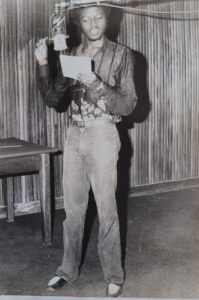
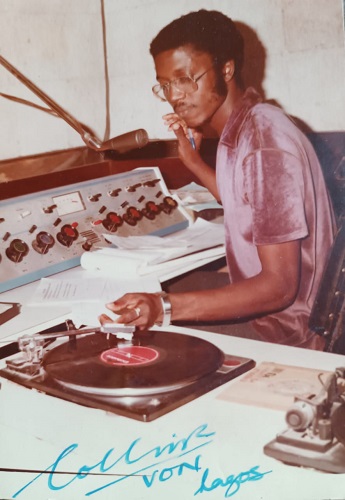
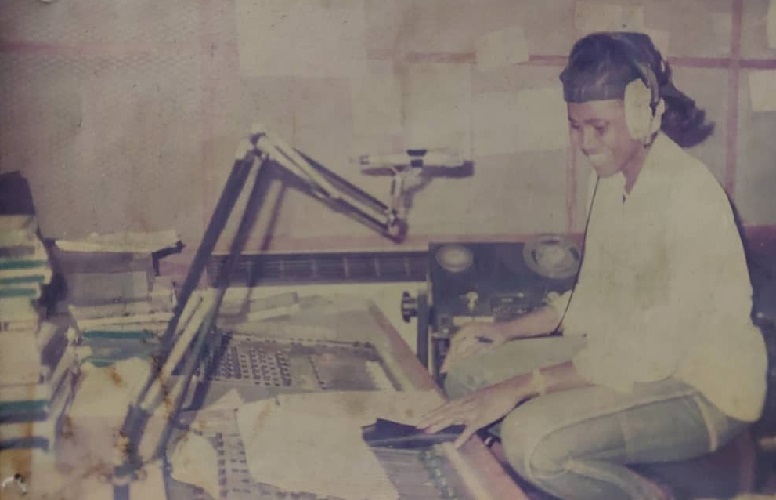
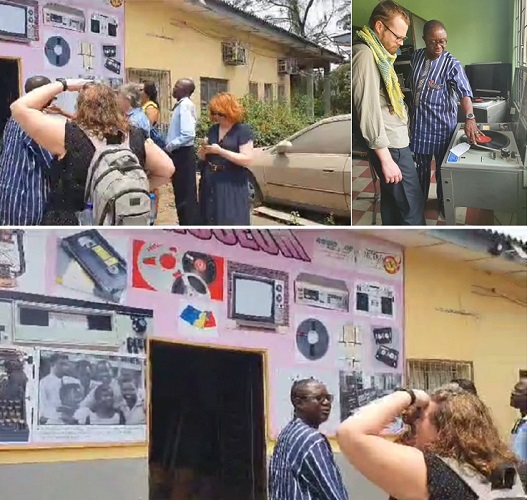

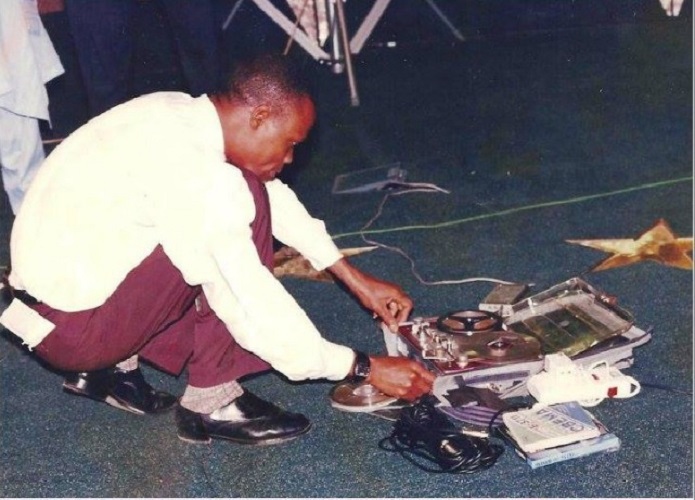
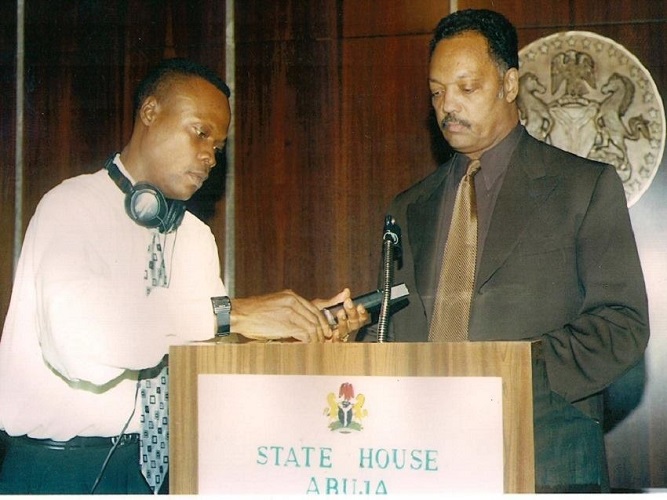
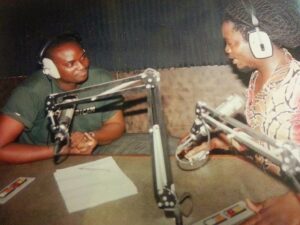
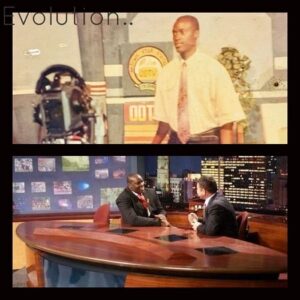
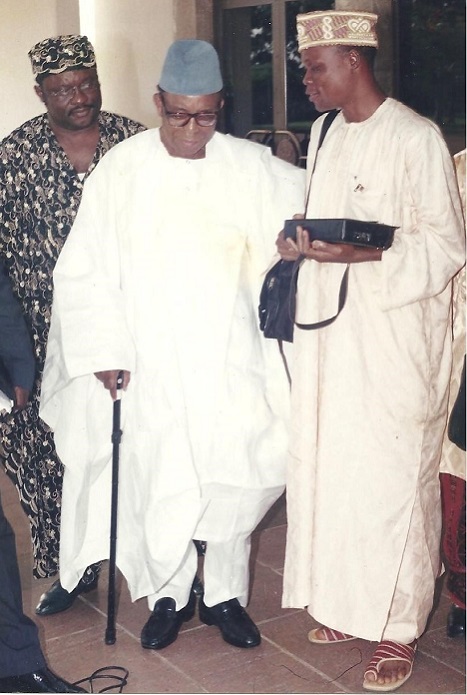
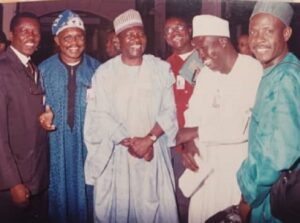
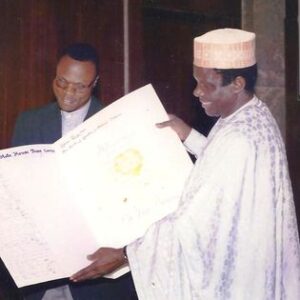
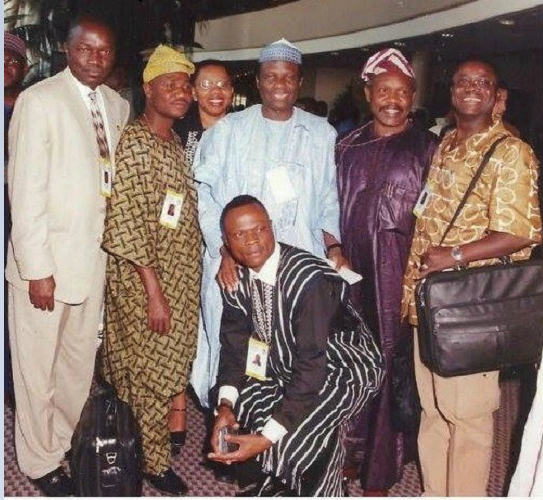
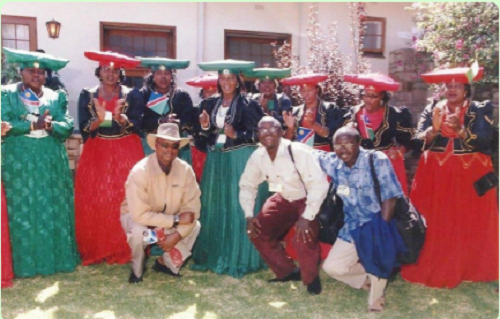
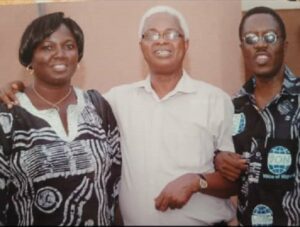
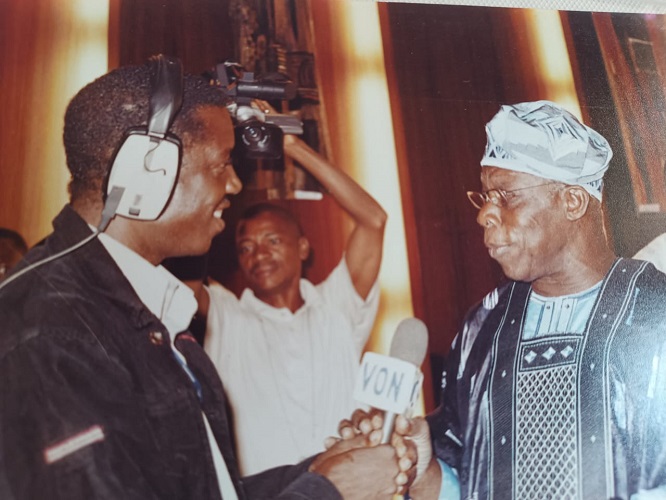
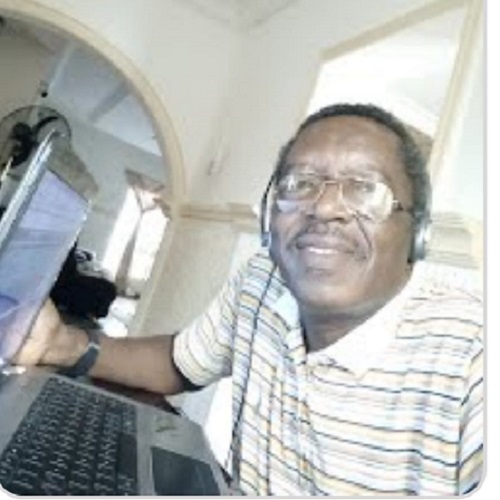
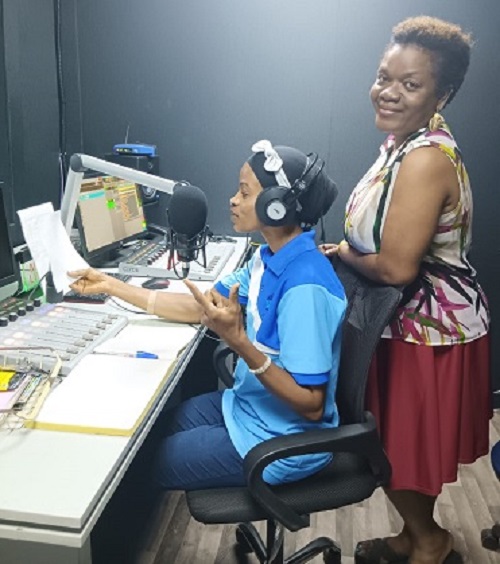
Cov/Tony Ekata
What’s your impression? Please leave a comment in the COMMENT BOX below.
